My mother and my father were born a year a part. Both of their birthdays are in May. I remember May 1983 vividly. A few days before my father’s 50th birthday, I was playing outside, holding a bottle that had a broken bottom. My friend hit the bottle, which flew right into my face, breaking the skin right under my right eye. I ran home with blood running down my face.
I remember Mom’s calm face when she saw her youngest child with a cut right next to his eye and covered in blood. I remember her calling the ambulance and calming me down. Miraculously, I did not lose my eye – the bottle had stopped just nanometers from the eyeball. I spent my father’s 50th birthday in the hospital. I still have a scar under my left eye that you can see in cold weather.
A year later my family was not so lucky. On May 6, 1984 – a day after her birthday – Mom was hospitalized with an enormous headache. She was diagnosed with brain cancer. Knowing my mom, she had probably had the headache for weeks but hid it, not wanting to ruin her or my father’s birthday celebrations.
A day after Mom was hospitalized my father took me to see her. That was the last time I saw the mother I had known.
Even at that time, as she was suffering enormously, I don’t remember seeing any fear or self-pity in my mother. She could not bring herself to think about herself and, on that last day with her, I remember her quizzing my father about my brother Leo and giving instructions about what my brother Alex needed to do in school.
My father fought for her using everything he had. All his energy went towards saving her. He found and brought a neurosurgeon from Saint Petersburg, who promised the moon – full recovery.
When people of science see a loved one facing death, they’ll cling to anything, even the empty promises of pseudoscience. I vaguely remember my father reading that water sent through a contraption that contained electricity and salt helped some people with cancer (or something along those lines). My father constructed that contraption and made that water for my mother.
Neither the surgery nor the contraption helped.
Murmansk’s population leaves Murmansk in the summer months and goes south (not much different from New Yorkers moving to Florida in the winter, except that half of Murmansk emptied in the summer). We needed as much warm weather and sunlight as we could get to warm our bones and store up heat for the coming winter. (That is how my mother jokingly explained it to me.) In those two or three summer months my family usually travelled to Moscow and Saratov to visit both sets of my grandparents, or visit other parts of the country.
Summer 1984 was different.
My brother Alex was 17 (he is six years older than me) and was sent to a resort in Tajikistan. My oldest brother, Leo, was 21 and a cadet at the Murmansk Marine Academy, so he stayed in Murmansk. My father stayed, of course, with my mom in Murmansk. In late May, my father gave me 15 rubles and a sack of sandwiches and put me on the train to Saint Petersburg.
It was a two-day journey. My father’s friend met me at the Saint Petersburg station and drove me to a pioneer camp in Pushkino, a small town south of Saint Petersburg. Fifteen rubles was a lot of money for a 10-year-old kid (though I’d turn 11 in a few weeks). As weird as it may sound, the very first thing I bought with this money, at one of the train stops, was the darkly satirical anti-war novel, The Good Soldier Švejk. There was definitely something seriously wrong with me. I should have bought a toy instead.
I never thought I’d be one of those people who say, “When I was your age I…” and describe how hard their life was. But the thought of putting one of my kids on a train without a cell phone and location-tracking software on their iPhone, sharing a train car with complete strangers for two days, is unfathomable to me. They could do this and be absolutely fine with it. I would not be fine.
A month later, my father’s friend picked me up from the camp and put me on the train to Moscow. In Moscow I was greeted by my brother Alex. I spent the rest of the summer with grandparents in Moscow and Saratov.
When we arrived in Murmansk in late August, I did not recognize my mom. In fact, the mother I knew was gone. My mother was a beautiful, vibrant, smiling woman with brown hair. Now there was a woman in our house with a short buzz cut and grey hair, who looked nothing like my mom. I did not understand how all her hair could turn gray in two months – only years later did I learn that she had colored her hair brown.
The surgery did not go well. The cancer kept growing. Mom did not recognize anyone but my dad. She called him Papa. She spent most of her time in bed and could barely speak. She spent a few more weeks in our apartment but had to be hospitalized as she got worse.
Looking back at my 11-year-old self, I am shocked by how clueless I was. My mother was dying, and I was going about my life as though nothing had happened. In fact, I remember enjoying my newfound freedom – my mother was not there to mother me, and my father was busy taking care of her.
That guilt for leading a normal life while my mother was in the hospital hooked up to an IV still haunts me to this day. But psychologists would opine that this was a self-preservation mechanism that allowed an 11-year-old to cope with his mother’s dying. It was too devastating for me to process, so I blocked it.
In early October, Mom’s sister Natasha came from Saratov to stay with us.
The evening my Mom passed away I remember as vividly as if it was yesterday. I was home with Aunt Natasha. The hospital called and asked to speak with my aunt. She took the call in another room. Then she came out, hugged me, and told me that her sister, my mom, had passed away.
I still don’t know why, but we went to the hospital. We were sitting in the lobby and my aunt was talking to administrators. I was sitting by myself. Someone asked me a question, and for the first and the only time in my life I found that I could not verbalize the words in my head. I remember just giving the questioner a puzzled look.
Thirty something years later I realized that I never said goodbye to my mom. Not really. My mom, the woman I knew, died a day after her 50th birthday when she was hospitalized. I did not say goodbye to her; I did not know she was dying. A woman with a buzz cut and grey hair that did not even look like my mother is the woman that died.
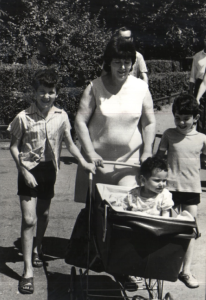
(1974 in Saratov. I am in the stroller. My oldest brother Leo is on the left. Older brother Alex – whose paintings you see often in my emails – is on the right. My Mom is pushing the stroller).
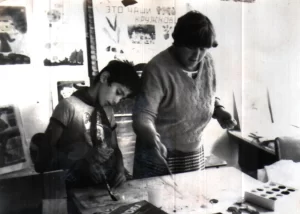
(Summer 1983: Probably the last picture I have with my mom in it. We are at Pioneer summer camp on the Black Sea, where both of my parents taught art. The boy is yours truly.)
Additional thoughts: Though the above section was excerpted from Soul in the Game, I did not initially write it for the book.
Let me tell you how it came about.
In late 2019, I started to have some light anxiety – it was a new feeling for me. Everything in my life was going right, but the better things were getting, the more anxious I felt. I am not sure anxiety is the right way to describe that feeling; I felt internal discomfort.
I went to see a psychologist. After a few sessions, she told me that I have a deeply embedded fear of losing what I have. I am still not sure if she was right or not. If she was right, I don’t know if it was a fear of personal or of financial loss. My family was doing great. IMA was becoming an overnight success after eight years of my leadership. Maybe I had more to lose. Or maybe, I was saddened by my father’s health. He had had a stroke a few years earlier and his health was getting progressively worse.
The psychologist said that it was possible that as a child I never got over my mom’s death. She advised me to write about the years when I lost my mom. Reliving them would bring the needed closure, as I never really said goodbye to Mom, and that childhood fear of loss was buried deep inside of me.
I took a break from writing my usual articles, and every morning for a month I worked on this section. It was a deeply emotional experience. I wrote for myself; I was not going to publish it. It felt too personal.
It is hard to explain the complexity and contradictory nature of the emotions I experienced during those writing sessions – pain collided with joy, sadness, happiness, warmth, chilling coldness – I experienced all of it. The psychologist was right; writing about it was liberating, and a month later I was my normal self.
Fast-forward a year, and as I was writing Soul in the Game, inadvertently (I am not in charge of the writing, my subconscious is; I just type) the book got more personal with every page, and so did my comfort level in sharing something I had never shared with anyone before.
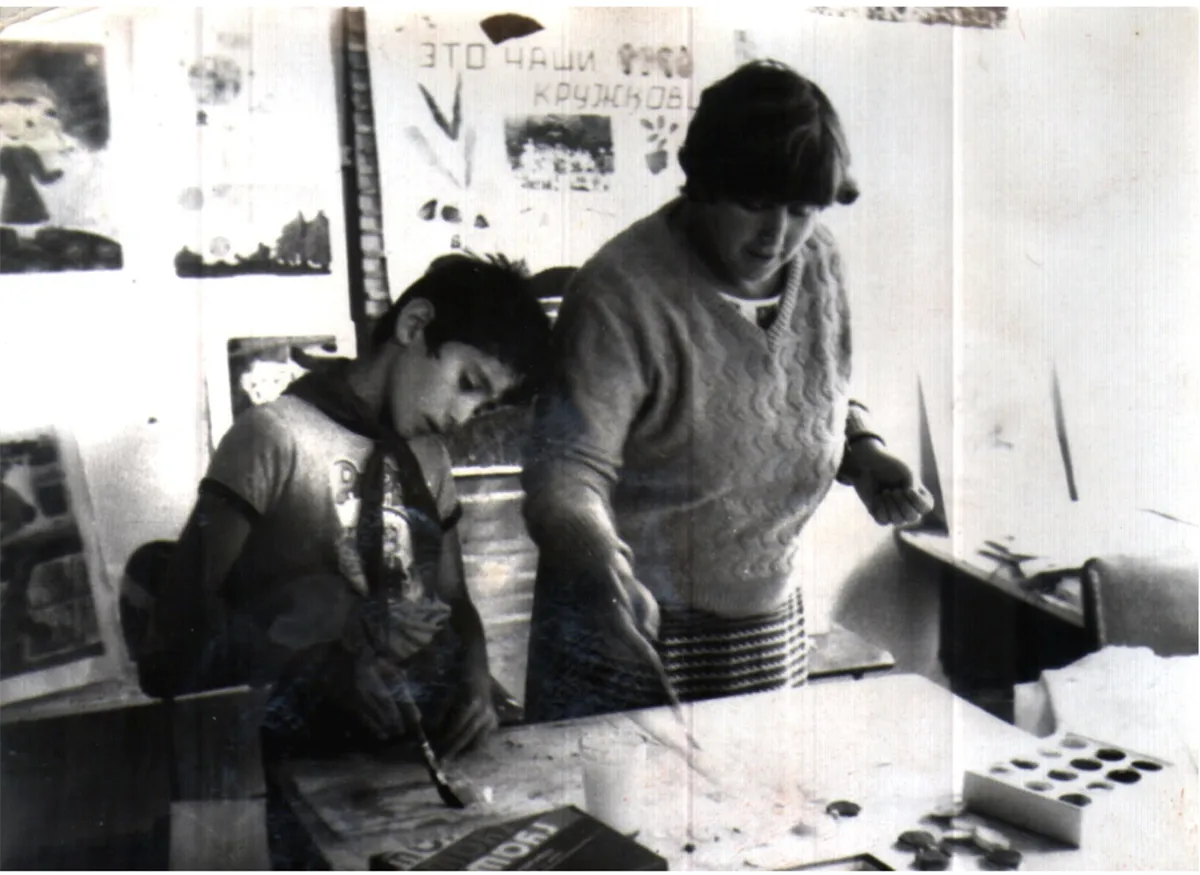
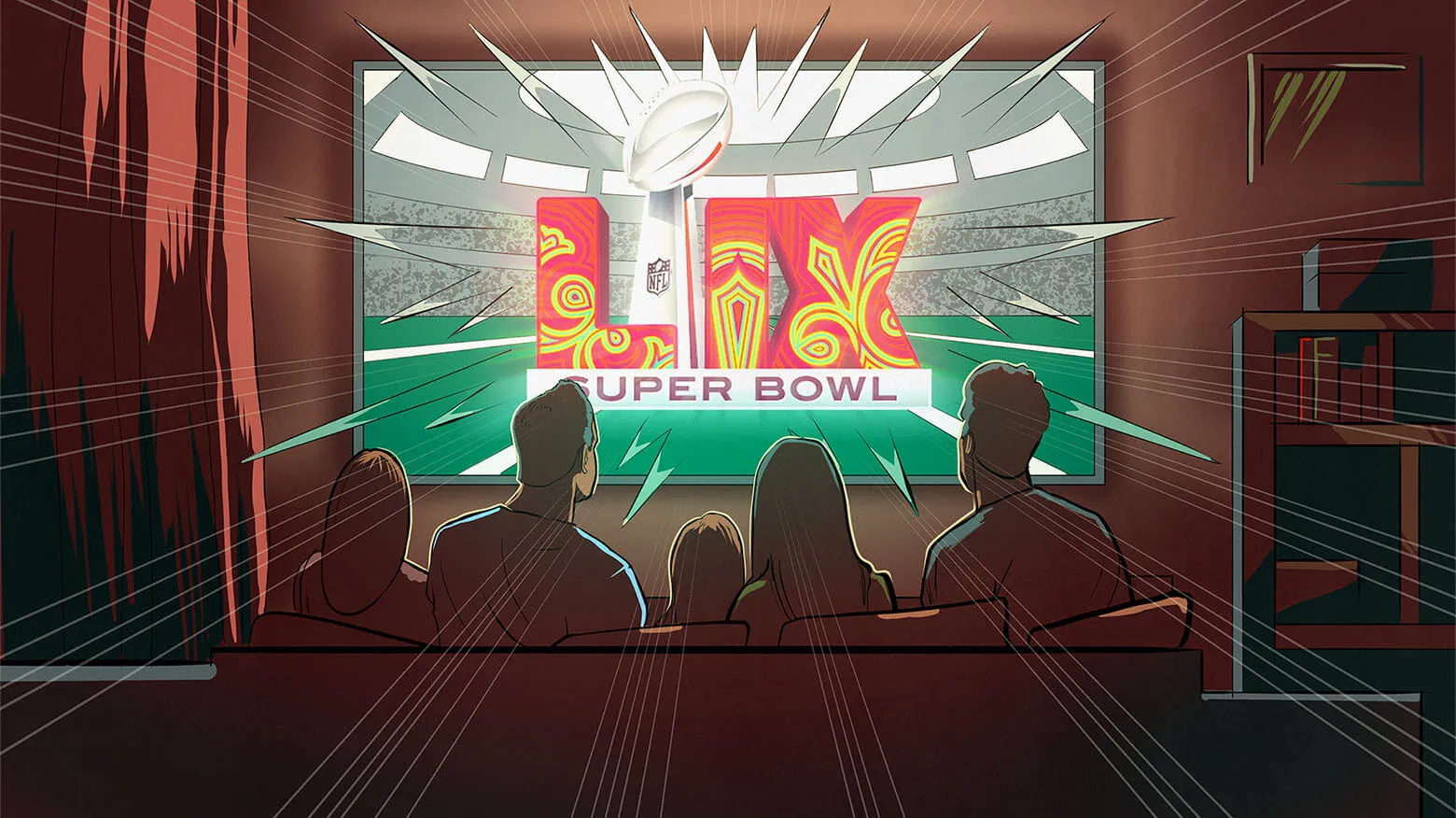
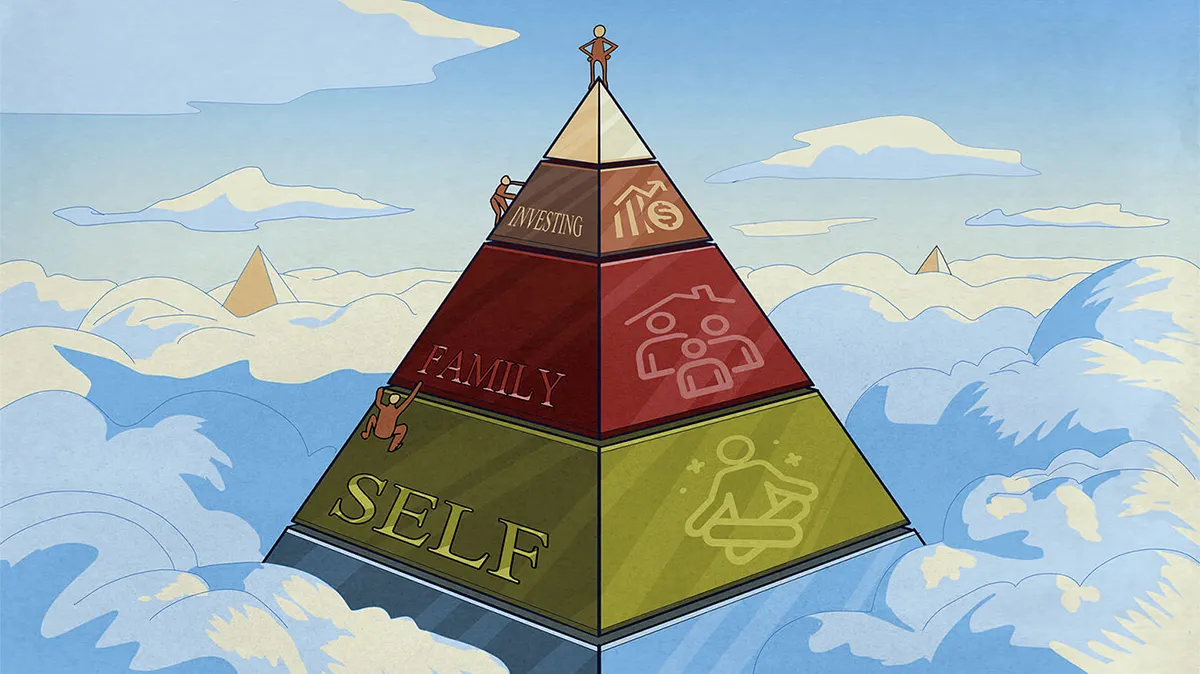
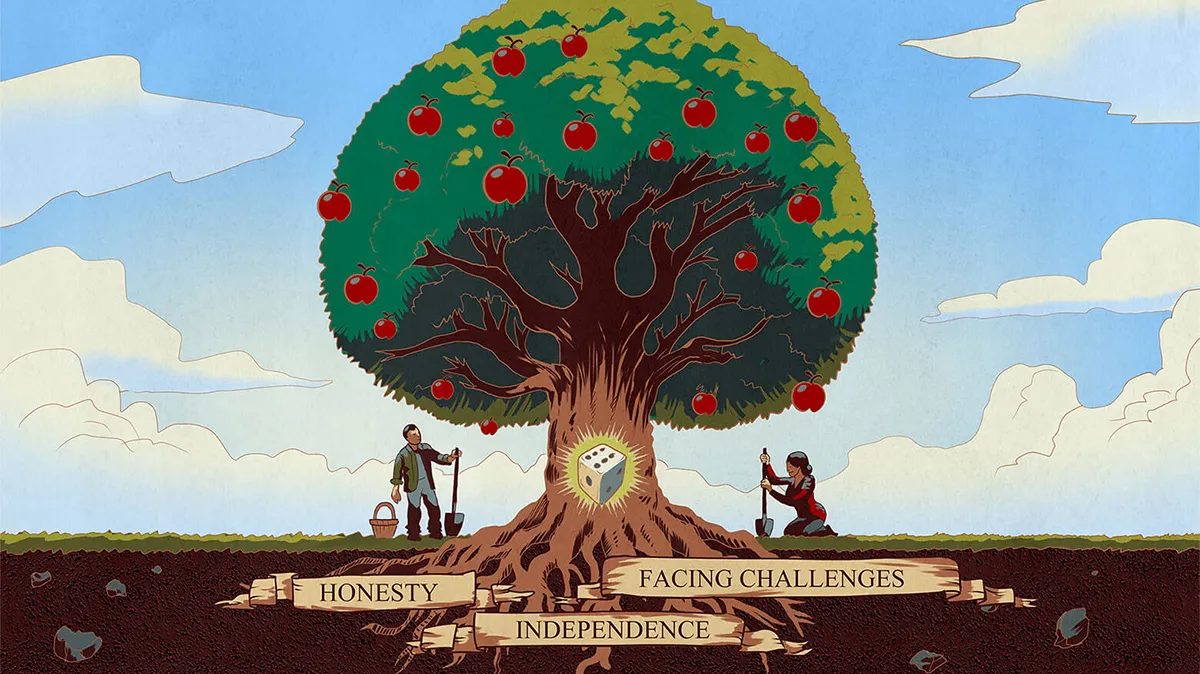
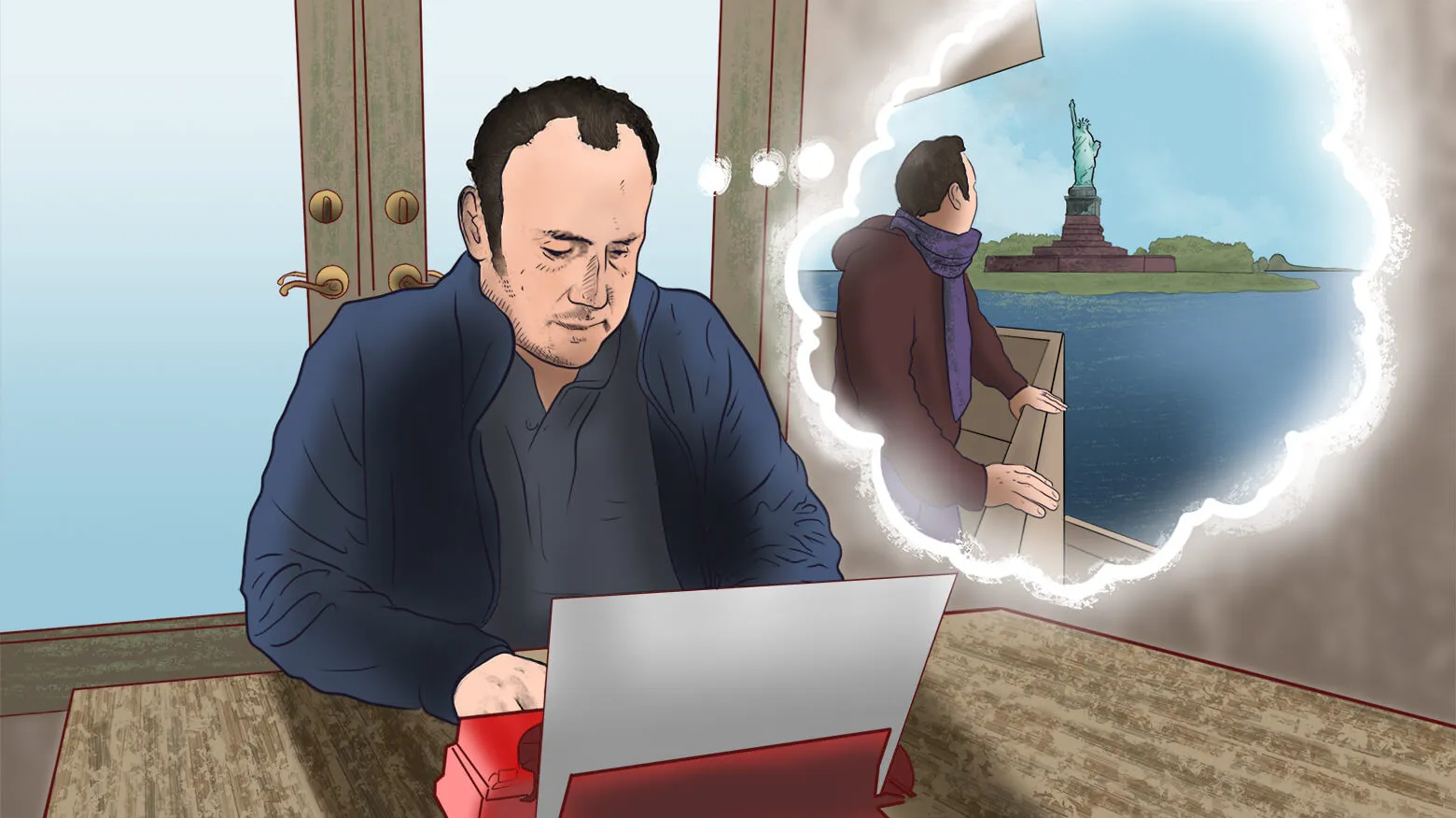




Hello, Mr. Katsenelson,
I enjoyed this essay so much and am looking forward to reading the rest of your work. I am shocked to see no comments here! Would you consider posting this on Medium?
Alas, errands interfere right now but I can’t wait to come back after reading a few more pieces and writing a more considered reply.
Best regards,
Maureen Murphy